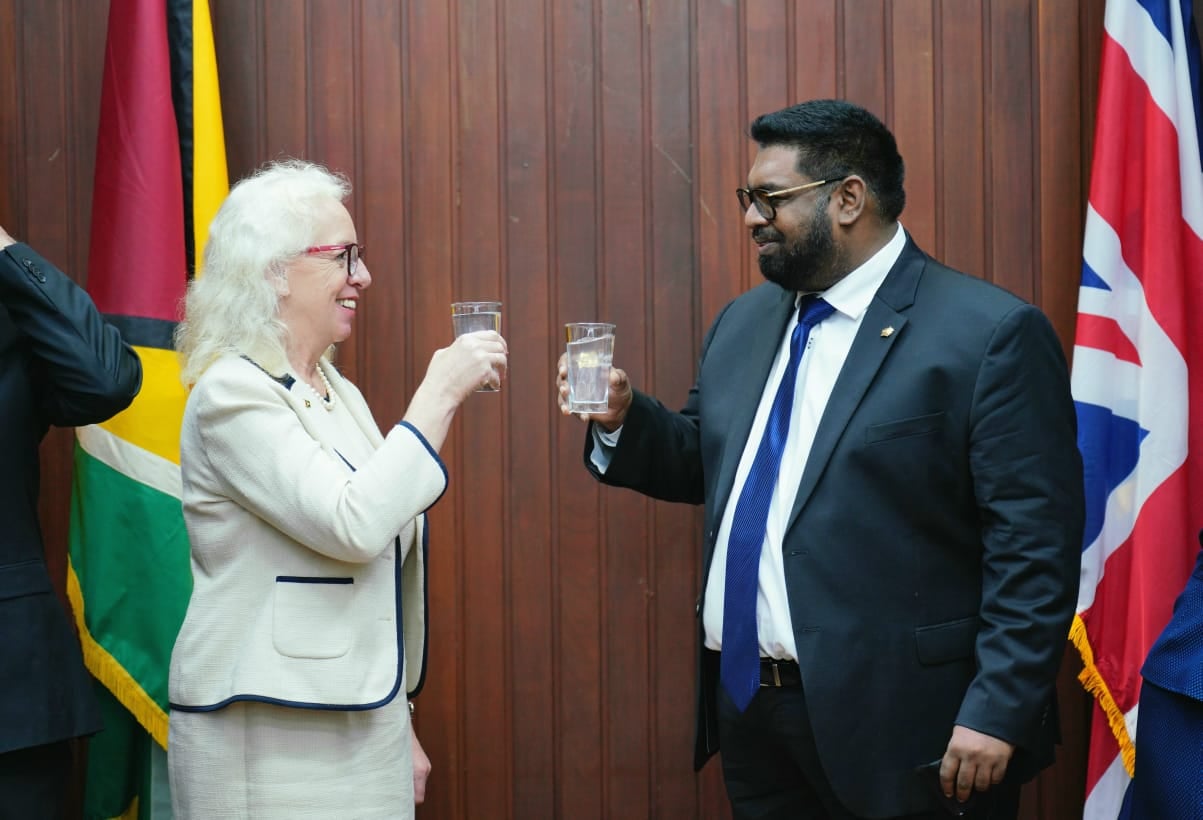 Kurt@newsroom.gy
Kurt@newsroom.gy
The United Kingdom’s High Commissioner Jane Miller has said she will push for the abolition of the death penalty and for other human rights to be observed in Guyana.
Just five months after she took up the post as High Commissioner, Miller has spoken about the start of serious engagement on the abolition of the death penalty, decriminalising suicide, and more protection for members of the Lesbian, Gay, Bisexual, and Transgender (LGBT) community.
Speaking to the News Room ahead of International Human Rights Day on December 10, Miller reasoned that while she was still getting to know the Guyanese people, and even with much more to understand, that she is not pushing the British agenda in Guyana since human rights are universal.
“These are agenda for everybody. I don’t think I should be pushing them, I think everybody should be pushing them. I hope to be a champion for them and amplify the voices of other people
“I don’t want to be seen as imposing an agenda. These are rights for everybody. Human rights are globally held rights,” High Commissioner Miller in the candid interview with the News Room at her residence on Monday.
“On LGBT rights, it’s an issue we will continue to raise.
“It’s important that everybody has rights, whether you’re a woman, whether you’re old, whether you’re young, whether you’re LGBT,” Miller noted.
 British High Commissioner to Guyana Jane Miller
British High Commissioner to Guyana Jane Miller
The High Commissioner’s urging is just one among the scores of calls to decriminalise same-sex relations and provide more protection for LGBT persons in Guyana.
But in addition to LGBT issues, High Commissioner Miller said she intends to raise the issue of the death penalty.
“On the death penalty, globally, it is not a deterrent to crime and behaviour. There is already a global campaign and I will continue to raise it,” she said.
Although no executions have been carried out since 1997, Guyana has continued to impose death sentences.
If the country agrees, Guyana will become the final country in South America to abolish the death penalty and may be able to influence other countries in the Caribbean and the wider Commonwealth to do the same.
Meanwhile, according to Chapter 8:01 96 of the Laws of Guyana, “everyone who attempts to commit suicide shall be guilty of a misdemeanor and liable to imprisonment for two years”. This law was drafted over 100 years ago.
Many international bodies have urged Guyana repeatedly over the last decade to change its laws to abolish the death penalty and decriminalise suicide.
Similarly, Miller is sounding the call but also assured that through her engagement, she is now confident that it is something that she is able to see change before her tour of duty ends.
Miller was at the forefront of drafting new guidelines that have since been adopted by the media for reporting on suicide.
“Human rights are as important as democratic rights. These are issues the UK will continually speak about. They are issues I personally feel strongly about,” she said.
But in addition to these three issues, High Commissioner Miller says she intends to also champion the cause of women. She is the first woman to be appointed British High Commissioner to Guyana.
This, Miller believes, represents a huge advancement for the UK government and said gender equality is an issue also close to her heart.
“It’s something I have been able to raise in many meetings as the first female in this point of leadership… for me, I’m a leader. I just happen to be a woman… I will continue to champion equal rights for women.”
Miller says when she leaves Guyana, she hopes to leave a country that has grown infrastructurally but also one that has very strong rights for its people.

